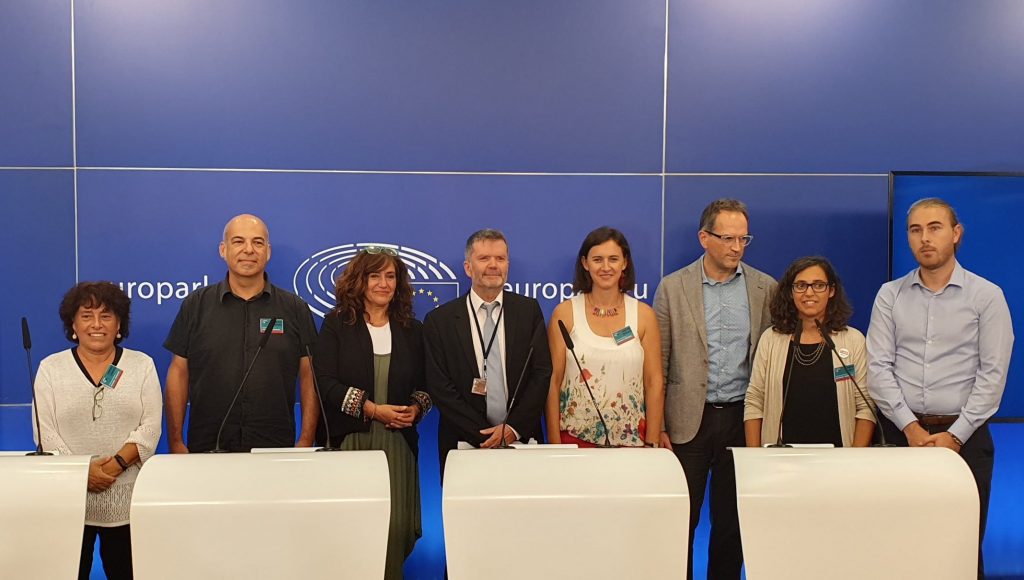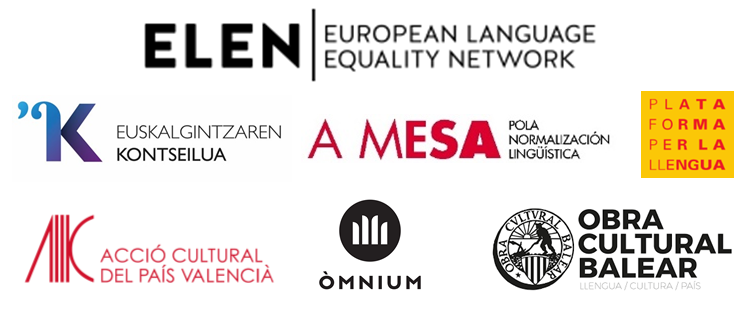
The European Language Equality Network (ELEN)calls on the EU Council to include basque, catalan and galician as EU official languages
ELEN is the international organisation working for the promotion and protection of Europe’s territorial languages. To date it numbers 175 member organisations representing 50 languages in 25 states including all of the languages in Iberia. Together, the ELEN membership represents over 40 million speakers of these languages, nearly 10% of the EU population, and aims to be the voice for the speakers of these languages with governments and with the international institutions.
ELEN welcomes the proposal by Spain for the inclusion of Catalan, Basque and Galician as full working EU official languages and together with its members: Euskalgintzaren Kontseilua, Plataforma per la Llengua, Omnium Cultural, A Mesa pola Normalización Lingüística, Obra Cultural Balear, Acció Cultural País Valencià, calls on EU Member States meeting at Council tomorrow to support the Spanish proposal. ELEN has campaigned for years with our member organisations for this objective.
The proposals will be discussed and voted upon at EU Council tomorrow 19th September.
Being included brings numerous practical benefits as well as the prestige that official status confers. It would also give the EU the opportunity to live up to its policy of supporting language diversity and enabling its citizens to use their language with the EU institutions.
If these languages are included, the impact will be very positive and a huge step towards the recognition and normalisation of our languages because official status at the European level is key to protecting the linguistic rights of their speakers. There are more than 500 legal provisions of all kinds that require the presence and use of EU official languages, particularly where it affects consumers, and this is very important, because it has a direct and indirect impact on people’s daily lives.
Lastly, inclusion will be an important milestone, because it would mean that the EU recognizes the plurilingual nature of Europe and its Member-States. However, it must be clearly stated that this would not be the end of language minoritization: there is still a long way to go. To this end, we reaffirm our commitment to continue working on all fronts to give our languages the recognition they deserve in order to guarantee the linguistic rights of our peoples.
–
